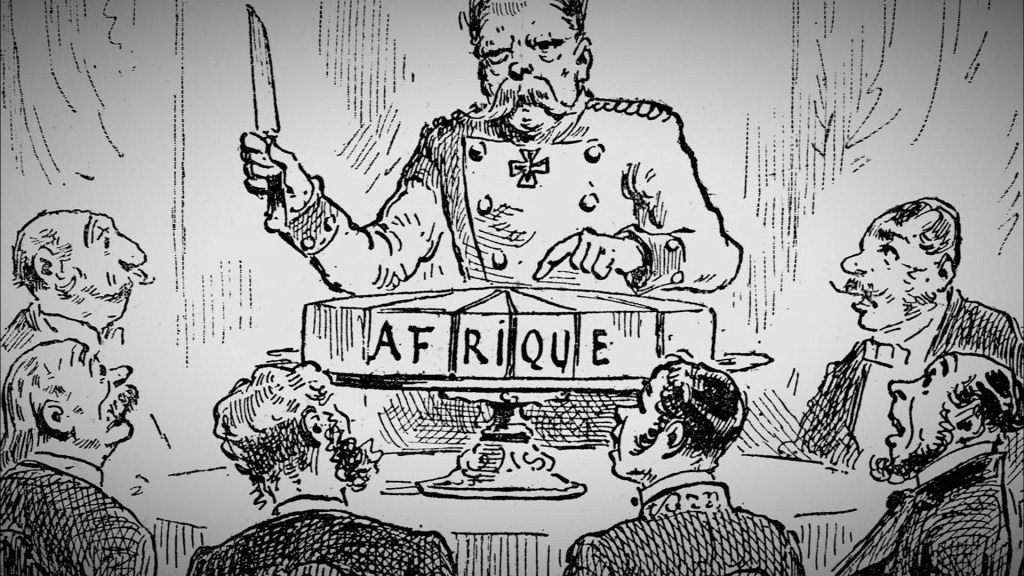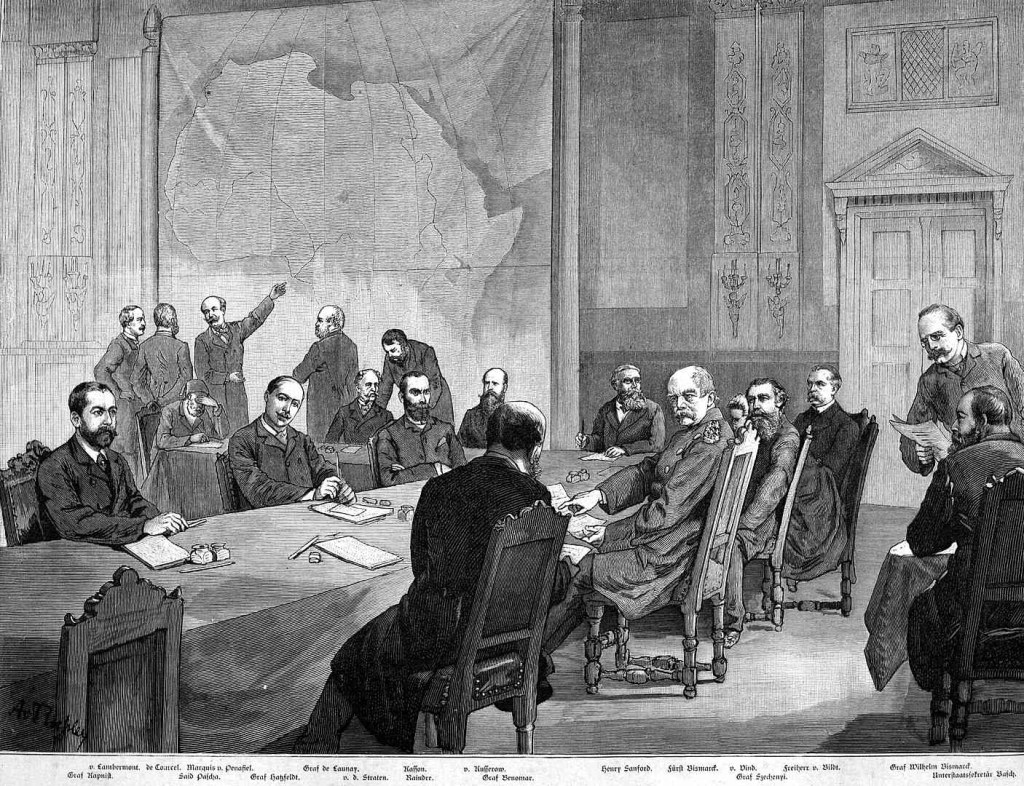The Berlin Conference In AP World History: Unveiling The Global Power Struggle And Shaping Our World
Berlin Conference in AP World History: The Turning Point in European Colonialism
Welcome, Berlin Readers! In this article, we will delve into the fascinating topic of the Berlin Conference in AP World History. This historical event, also known as the Berlin West Africa Conference, marked a crucial turning point in European colonialism and the scramble for Africa. By understanding the context, participants, purpose, and consequences of the conference, we can gain valuable insights into the impact of European imperialism on the African continent. So, let’s embark on this journey to uncover the intricacies of the Berlin Conference and its significance in shaping the world we live in today.
Introduction
The Berlin Conference was a pivotal moment in the history of European colonialism. It took place from November 1884 to February 1885 and was organized by the German Chancellor, Otto von Bismarck. The main objective of the conference was to avoid conflicts and regulate the colonization of Africa by European powers. At that time, Africa was largely unexplored and held vast untapped resources, making it an attractive prospect for European nations seeking economic and political dominance.
3 Picture Gallery: The Berlin Conference In AP World History: Unveiling The Global Power Struggle And Shaping Our World
The conference was attended by representatives from fourteen European countries, including Austria-Hungary, Belgium, Denmark, France, Germany, Italy, the Netherlands, Portugal, Russia, Spain, Sweden-Norway, Turkey, and the United Kingdom. The United States, although not a European power, also sent a representative to observe the proceedings. However, it is important to note that no African representatives were present, and decisions regarding the division of Africa were made without their input, exacerbating the negative consequences of colonialism.
The Berlin Conference led to the partitioning of Africa among European powers, resulting in the carving up of the continent into artificial boundaries that often ignored cultural, ethnic, and linguistic differences. This division sowed the seeds of future conflicts and instability, which still plague many African nations today. It also established the framework for European dominance and exploitation of Africa, fueling the era of imperialism.

Image Source: i0.wp.com
Now, let’s explore the key aspects of the Berlin Conference and gain a deeper understanding of its historical significance.
What Was the Berlin Conference?
The Berlin Conference was an international diplomatic meeting held in Berlin, Germany, from November 1884 to February 1885. The conference aimed to establish rules and guidelines for the colonization of Africa by European powers. It sought to prevent conflicts between European nations over territories and resources in Africa and promote a peaceful resolution through negotiation and agreement.
During the conference, the European powers discussed and negotiated the division of Africa, drawing arbitrary borders and allocating territories to each nation. This process resulted in the establishment of European colonies, protectorates, and spheres of influence across the continent. The decisions made at the Berlin Conference had far-reaching consequences for Africa and its people, shaping the course of history for decades to come.
Who Were the Participants of the Berlin Conference?
The Berlin Conference was attended by representatives from fourteen European powers, including Austria-Hungary, Belgium, Denmark, France, Germany, Italy, the Netherlands, Portugal, Russia, Spain, Sweden-Norway, Turkey, and the United Kingdom. Each nation sent delegates to represent their interests and negotiate the division of Africa.

Image Source: pbs.org
The United States also participated in the conference as an observer, demonstrating its growing interest in global affairs. While the African continent was being divided, the presence of the United States showcased the emergence of a new world power. However, it is important to note that no African representatives were present at the conference, and their voices and perspectives were completely disregarded.
When Did the Berlin Conference Take Place?
The Berlin Conference was held from November 1884 to February 1885. The conference lasted for three months, during which the delegates engaged in extensive negotiations and discussions to reach agreements on the division of Africa. The decisions made during this period had a profound and lasting impact on the continent and its people.
Where Was the Berlin Conference Held?
The Berlin Conference took place in Berlin, the capital city of Germany. The choice of Berlin as the host city was significant as it symbolized Germany’s growing prominence on the world stage and its ambitions to secure its share of African territories. Berlin provided a neutral ground for the European powers to convene and negotiate their colonial aspirations in Africa.
Why Was the Berlin Conference Significant?
The Berlin Conference was significant for several reasons. Firstly, it marked the formal recognition of European dominance over Africa and the legitimization of colonial rule. The decisions made at the conference laid the groundwork for the subsequent colonization and exploitation of Africa, contributing to the rise of European empires and the subjugation of indigenous populations.

Image Source: thoughtco.com
Secondly, the conference established a framework for resolving conflicts between European powers through negotiation and diplomacy rather than military confrontation. This diplomatic approach aimed to maintain stability and prevent the outbreak of wars or territorial disputes among the colonial powers.
However, the conference’s significance is also marred by its exclusion of African voices and the disregard for the continent’s existing political and cultural systems. The arbitrary division of Africa’s territories without considering the wishes or interests of its indigenous peoples led to long-lasting consequences, including ethnic tensions, displacement, and economic exploitation.
How Did the Berlin Conference Impact Africa?
The impact of the Berlin Conference on Africa cannot be overstated. The division of Africa into artificial boundaries disrupted traditional societies and ignored the ethnic, linguistic, and cultural diversity of the continent. This division led to the creation of colonial territories that were often governed with little regard for the needs and aspirations of the African people.
The Berlin Conference also intensified European exploitation of Africa’s resources, such as minerals, rubber, and timber. European powers extracted these resources for their own economic gain, leading to the impoverishment and underdevelopment of many African nations.
Furthermore, the conference set the stage for future conflicts and instability in Africa. The artificial borders created by the colonial powers often divided ethnic groups and forced rival tribes or nations to coexist within the same territories. These tensions continue to fuel conflicts and political instability in many African countries today.
Pros and Cons of the Berlin Conference
1. Pros of the Berlin Conference:
✅ Peaceful Resolution: The conference aimed to prevent conflicts between European powers over African territories and resources, promoting negotiation and diplomacy as a means of resolving disputes.
✅ Preservation of European Balance of Power: By establishing rules and guidelines for colonization, the conference helped maintain a balance of power among European nations, reducing the likelihood of wars or territorial disputes.
✅ Economic Development: European colonization brought some degree of economic development to Africa, including the construction of infrastructure, introduction of new technologies, and development of export-oriented industries.
2. Cons of the Berlin Conference:
❌ Disregard for African Interests: The conference completely ignored the perspectives and interests of African peoples, making decisions about their territories without their consent or involvement.
❌ Arbitrary Borders: The division of Africa into artificial boundaries disrupted traditional societies, created ethnic tensions, and forced rival tribes or nations to coexist within the same territories.
❌ Exploitation and Underdevelopment: European powers exploited Africa’s resources for their own benefit, leading to the impoverishment and underdevelopment of many African nations.
Frequently Asked Questions (FAQs)
1. Q: How did the Berlin Conference contribute to the colonization of Africa?
A: The Berlin Conference set the stage for the colonization of Africa by dividing the continent among European powers and legitimizing their colonial rule. It resulted in the establishment of European colonies, protectorates, and spheres of influence across Africa.
2. Q: Why were African representatives not present at the Berlin Conference?
A: African representatives were not invited or allowed to participate in the Berlin Conference. The conference was an exclusive gathering of European powers, who made decisions about Africa’s future without considering or consulting the African people.
3. Q: Did any African nations resist European colonization after the Berlin Conference?
A: Yes, several African nations resisted European colonization after the Berlin Conference. Leaders such as Samori Touré, Menelik II, and Yaa Asantewaa organized armed resistance against colonial powers, defending their territories and cultures.
4. Q: Did the Berlin Conference have any positive impacts on Africa?
A: While the Berlin Conference brought some economic development to Africa, such as the construction of infrastructure, it is important to acknowledge that the negative consequences far outweighed any potential benefits. The conference disrupted societies, exploited resources, and perpetuated colonialism and its associated injustices.
5. Q: How does the legacy of the Berlin Conference continue to affect Africa today?
A: The legacy of the Berlin Conference is still deeply felt in Africa today. The arbitrary borders created by the colonial powers have resulted in ongoing ethnic tensions, conflicts, and political instability. The economic exploitation initiated during this era has contributed to the underdevelopment and dependency of many African nations.
Conclusion
The Berlin Conference was a pivotal event in the history of European colonialism and the colonization of Africa. It marked the formal recognition of European dominance over the continent and set the stage for the subsequent exploitation and underdevelopment of African nations. The decisions made at the conference continue to shape Africa’s political, social, and economic landscape to this day.
As we reflect on the Berlin Conference, it is crucial to recognize the lasting consequences and injustices inflicted upon Africa. By learning from history, we can strive to build a more equitable and inclusive world that respects the rights and voices of all nations and peoples.
Final Remarks
The Berlin Conference exemplifies a dark chapter in human history, characterized by the pursuit of power, exploitation, and disregard for the dignity and autonomy of others. It serves as a reminder of the importance of pursuing justice, equality, and respect in our interactions with one another.
While we cannot change the past, we can learn from it and work towards a future where the mistakes and injustices of the past are not repeated. Let the lessons from the Berlin Conference guide us in our efforts to build a more just and inclusive world for all.
This post topic: Berlin



